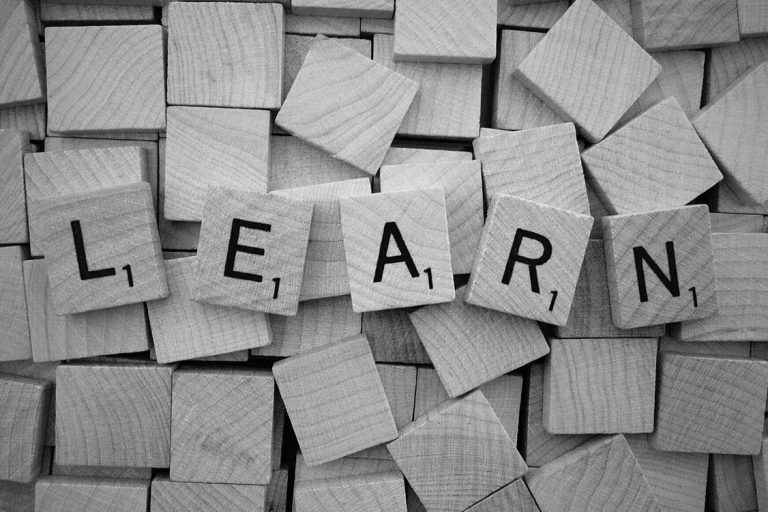Synopsis
In many areas of people’s healthcare (both regular and complementary medicine), you see that the focus is on one part of the patient instead of including the bigger picture. For instance, the stomach, skin, lungs, or mental difficulties such as aggression, depression, or concentration disability are being treated. Those systems are based on the assumption that a part of the body or part of the mind is ill or does not function properly. In other words, in our society, we assume that the person consists of many parts and components and need to be treated separately. The problem is that fixing one part can influence the functioning of another part. In a complex machine, it is not wise to forget about the big picture and focus solely on a small part because this can influence or affect the functioning of other parts and therefore the big picture. That one part does not function is clear, we do not dispute that, but the cause of this dysfunctioning part is not isolated in a part of the person but in the general health or the defence mechanism of the person. In classical homeopathy, we base ourselves on the premise that a human being is one whole person and that you need to treat it accordingly. Therefore, a classical homeopath does not focus the treatment on the part of the person that at first impression seems to be dysfunctional but we treat the totality of symptoms and complaints and try to improve the general health of the person. According to us, this leads to a nicer, more efficient and more satisfying result.
Do you no longer want to fight the symptoms rather than treating the root causes of the diseases?
In medicine, health problems are often focused on a part of the person, whether you are a looking at the mental-emotional aspect or physical aspect. A dermatologist, for instance, focuses on the skin, a cardiologist is restricted to the heart, a psychologist only treats the psyche, etc. Medication is prescribed only to soothe a dysfunctioning part like a painkiller for a headache, corticosteroid inhalers against inflammation of the lungs, antidepressant medication against sad mood, antacids against heartburn, etc.
In the example of the antacids, the assumption is that the stomach is ill and thus the effects of a dysfunctioning stomach are treated with medication that is solely for the stomach. If the patient also has skin problems then another specialist will have a look at this and will prescribe medication for the skin. This can result in many therapists, physicians or other specialists working on different parts of the human being because every one of the specialists assumes a part of the patient is malfunctioning.

But the health of a human being actually does not consist of parts that you need to treat separately; the human being is considered in its totality. By focussing a treatment on certain symptoms or a specific aspect of the health of a person it can become frustrating to realise that the efforts are just a drop in the ocean. Symptoms and complaints persist and the patient keeps being bothered by them so that he or she is forced in many cases to use medication and/or therapy for a long time. But this therapy only camouflages the symptoms.
A big problem is that the treatment of one organ can cause a problem for another organ. Some examples: antacids can cause constipation, certain antipsychotics can cause overweight, medication against cystitis can cause fungal infection, etc. It is like trying to fix an intricate machine and only having knowledge of a small part without overseeing the big picture. This is doomed to go wrong.
This is often the cause why people are looking for alternatives to cure their complaints, like classical homeopathy, because they do not like it that their health complaints are not really cured and that the treatment causes other complaints.
A classical homeopath always works on the bigger picture and not on parts of the human being
Within classical homeopathy, we do not assume that a part of the patient is sick or malfunctioning but that the whole person is sick and that symptoms are an expression of this. Being sick is not something tangible and we cannot see this, operate on it, etc. But we can see the results of this sickness, because patients produce several symptoms in different organs and systems. Symptoms can manifest themselves in so-called ‘weak spots’ of the patient. In short: in classical homeopathy, we think that problems in health express themselves by symptoms in several parts of the patient and not that individual organs or systems are sick. An interesting article in this respect is ‘The “continuum” of a unified theory of diseases‘.
The above is sometimes difficult to understand and in a short article like this, it is almost impossible to describe all aspects of this idea. But considering this idea it becomes clear that classical homeopathy tries to improve health in a different way. We try to improve the whole health of the person and because of this, the symptoms reduce. We use all symptoms (not just the ones of one organ or system) to find the correct homeopathic remedy that fits best the symptoms of the patient.

As a classical homeopath, you are not a specialist but more a generalist. A homeopath that is specialised in gastrointestinal, respiratory, psychological or dermatological complaints etc. does not exist. It is like a contradictio in terminis. The basic treatment is more or less always the same: try to find the homeopathic remedy that fits the patient, not the complaint.
Besides classical homeopathy, there is also something like clinical- or complex homeopathy. Clinical homeopathy is a therapy where one prescribes a potentised remedy based on one diagnosis or complaint. Complex homeopathy does the same but does not prescribe one remedy but a combination of several remedies based on one complaint or diagnosis. These remedies are often the remedies that can be found in natural health food shops. Strictly speaking, this is not homeopathy but a commercial application of potentised remedies in order to earn as much profit as possible. By not looking at the whole patient, but only at the diagnosis or diseased organ, this therapy does not work in the long run and if it works it only works by suppression of symptoms. It is ironic that through these therapies the name of homeopathy has become well known but as a matter of fact, they are not adhering to basic homeopathic principles. Unfortunately, because clinical- and complex homeopathy have become well known the reputation or ideas about classical homeopathy have been confused and wrongly interpreted. In classical homeopathy, we do not treat the disease but the diseased person.
Compare this to a car in which the oil level is too low. On the dashboard, you can see a light turning on and if you wait long enough you probably will also hear sounds coming from the engine. The light and the noise are signs that something is wrong with the engine, they are not the real problems. You can choose to remove the light and ignore the noise but this will not solve the problem adequately and permanently. It is better to add oil to the engine.

For a homeopath, it is important to not only to consider all the symptoms of the patient but also to determine if there are obstacles that prevent the cure of the patient. These obstacles can cause problems regarding the health of the patient (for instance, stress in the work environment causing the patient to sleep badly, etc.). It is not always possible to remove or circumvent these obstacles but it is important to at least be aware of them. Samuel Hahnemann, the founder of classical homeopathy, already wrote in the Organon (among others, paragraph 3) that is is important for every physician to know about these obstacles.
The anamnesis (a conversation where you try to survey the complaints and symptoms of the patient) is therefore an important tool for the classical homeopath to gather the correct information. The homeopath must know how to ask questions so that the information is as objective and reliable as possible. There are certain rules, tips and tricks in order to avoid overlooking information.
We are not of the opinion that general medicine is bad; in certain cases it is necessary or even better. A good homeopath knows when to refer cases to a general practitioner or another therapist.
The ECCH teaches you how to take into account the general health of a person and not to treat locally or just symptoms
During our course to become a classical homeopath, we teach you step by step to look at the big picture of the complaints and symptoms and to their interdependence. By analysing and working out many cases you will be trained extensively to look at the general health of patients, the relationship between certain symptoms and the occurrence of possible obstacles. This will help you understand the patient instead of just a part of a patiënt. In this way, you will have learned how to analyse the health of patients and how you can improve their health instead of treating separate symptoms.
Only by improving the general health of the patient, instead of treating just symptoms, is it possible to achieve meaningful and substantial improvements in the health of a human being in the long run. We teach you how to take into account certain obstacles. During the course, we provide you with ample examples of cases so you can learn everything about this.
An anamnesis is a conversation in order to survey the signs and symptoms of a patient. We attach a lot of value to the anamnesis because this is the way to get access to all available information. During the lessons, you will be provided with all necessary information about how to conduct an anamnesis so you can apply this to the paper cases you will be analysing. Later on, you will be seeing video cases. During the presentation of these video cases, we will explain the do’s and don’ts during the anamnesis. During the supervision phase, you will learn how to perform an anamnesis yourself under the guidance of an experienced homeopath.

From start to finish we put a lot of importance on the link between anamnesis and analysis and we will show you how important an objective and thorough anamnesis is in order to be able to help the patient. In that way, you will be ready to treat patients after you have finished the course.
Did this article interest you or do you have any more questions? Please do not hesitate to contact our educational center. If you are enthusiastic and you want to enrol for the course, please fill in the intake form.

